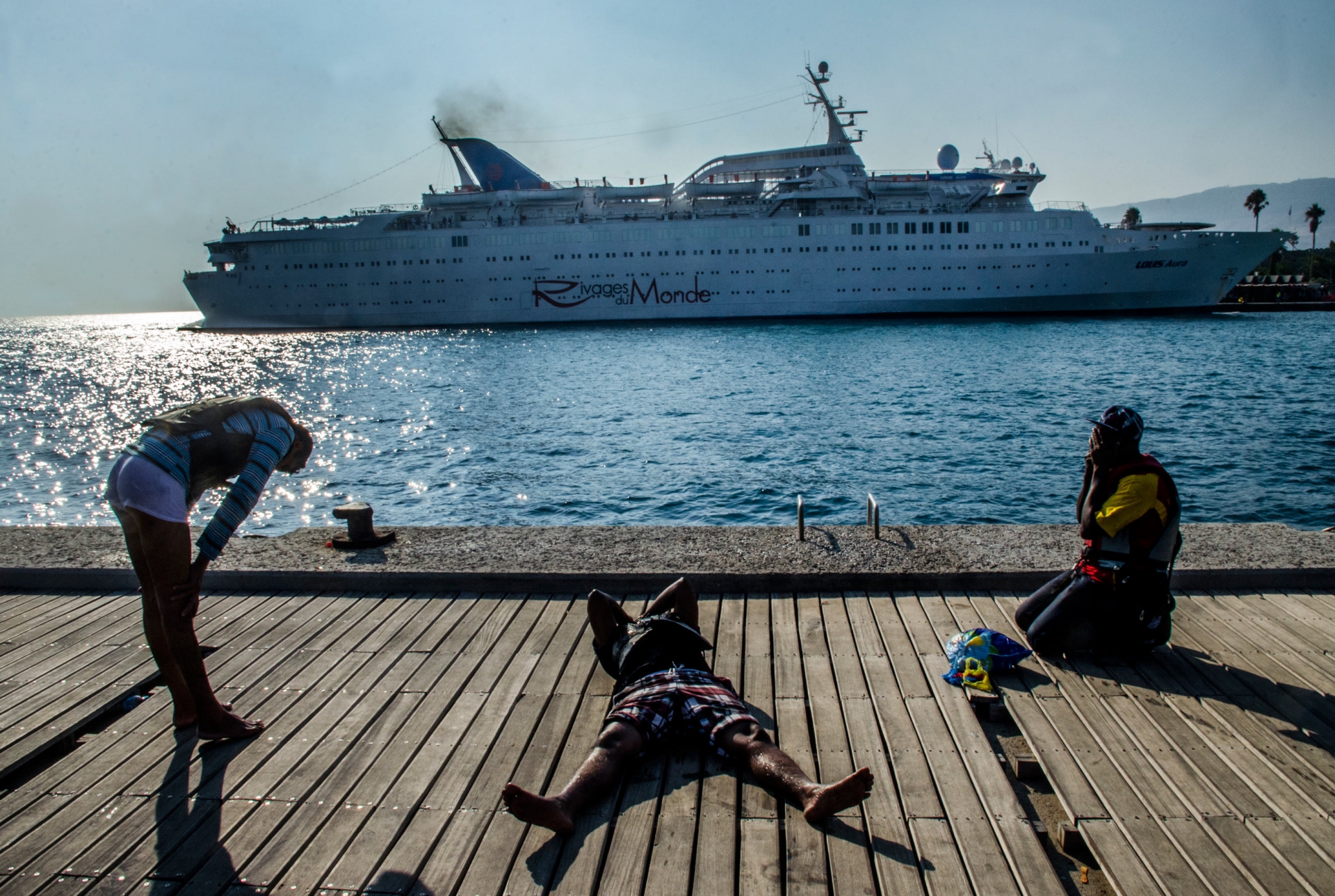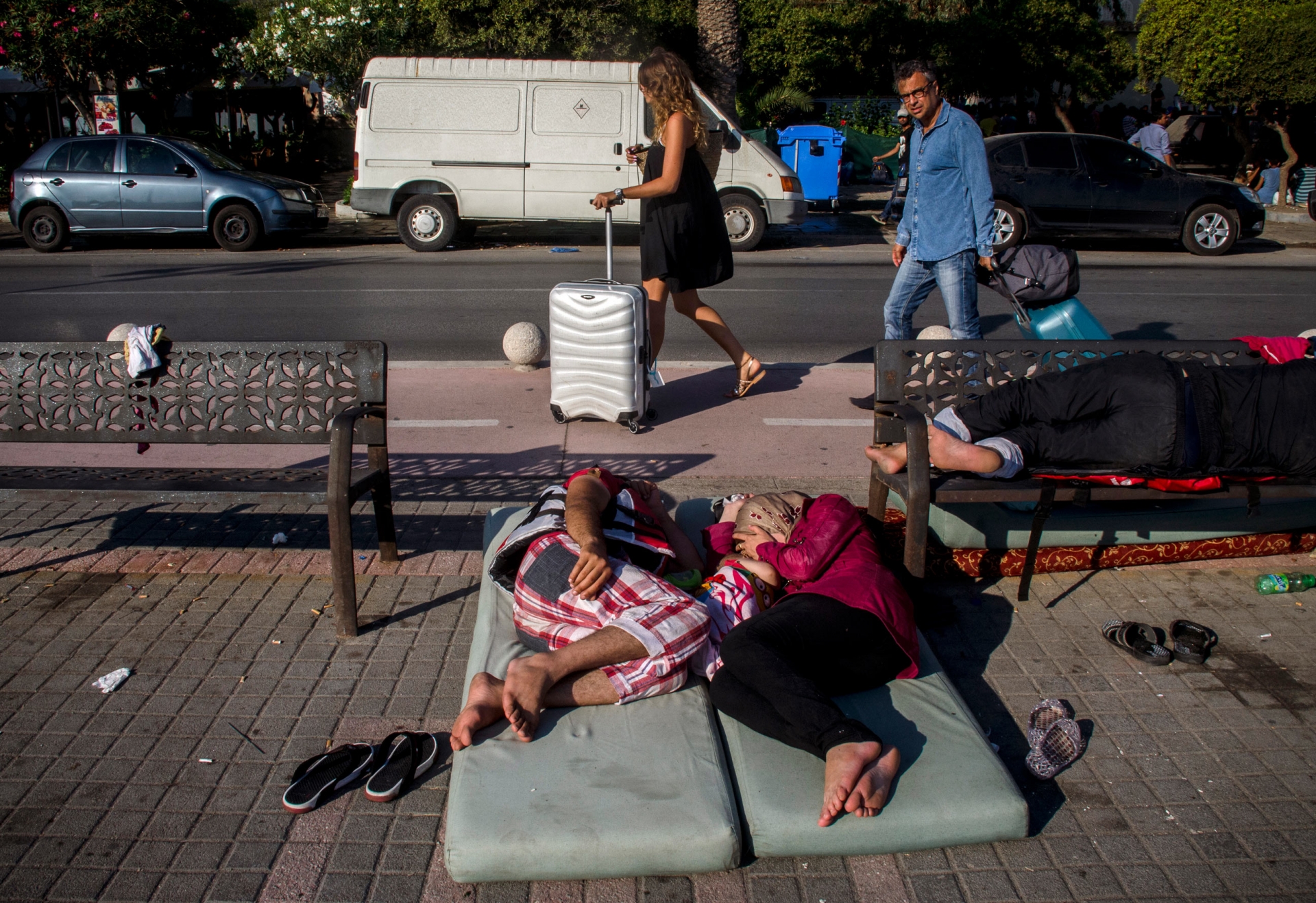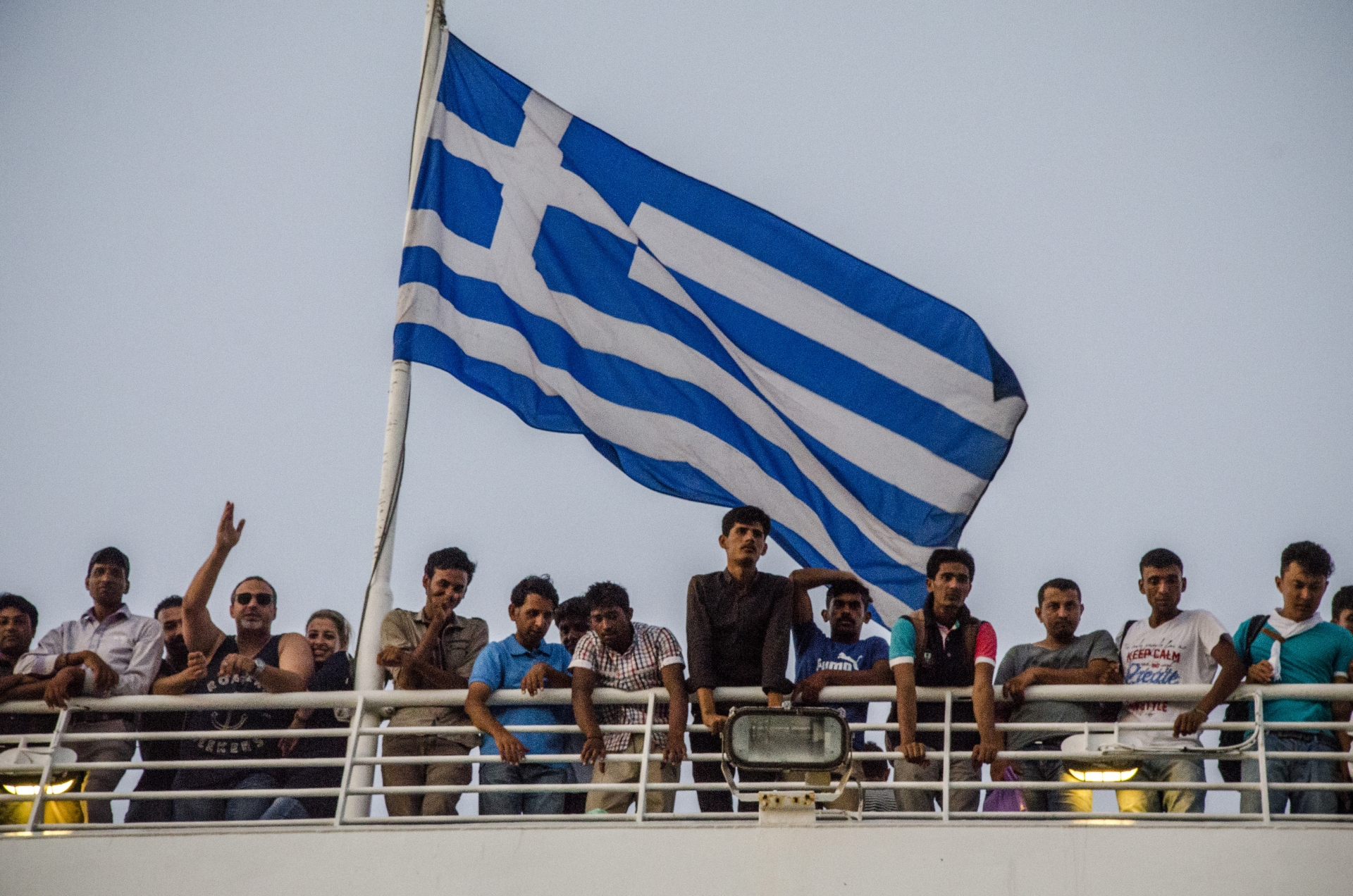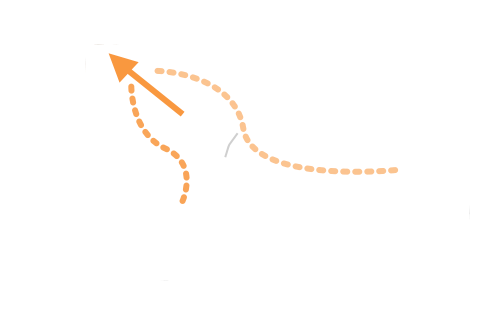“There is No Sky or Land When You Sink at Night”
By: Javier Bauluz
“There is no sky or land when your boat sinks at night,” said one woman. “I was filled with a fearless calm when I thought I was going to drown.”
“We were rescued by the Turkish navy, because they saw our signals from the light of our cell phone,” she added. “The next day, we took a different boat, and here we are.”
Arriving aboard a tiny inflatable boat resembling a toy, the woman and two friends have fear chiseled into their faces as the sun starts to rise over a remote beach on the Greek island of Kos. Just a few hours later, the beach will be full of European tourists.

Only the photojournalist has witnessed their landing. No one else is there to receive them. A man walking on the beach approaches their little boat before they set foot on the sand and, without saying a word, makes off with the motor.
It’s still dark as they start to walk toward the center of the town, less than a mile away. The woman twisted an ankle when she jumped out of the boat, so she walks slowly. A young Syrian, carrying only a briefcase, helps her walk.
Fatigue and tension from recent events shows on the faces of the 10 other migrants who joined the boat ride from Bodrum on the Turkish Coast. It’s just 2.5 miles to Kos, a trip of three to four hours.
The streets are deserted, and the hundreds of tourist shops and restaurants closed. The group sits on a sidewalk to rest and uses cell phones to call relatives and let them know they are alive, that they have reached Europe.
A man in uniform turns up out of nowhere, gesturing aggressively and shouting at the refugees in Greek. He is a watchman, and the group sits in front of the shop he guards. No one understands what he’s saying until he starts to shout in English. “Get out of here or I’ll call the police.” The journalist takes a photo of the violent scene and the watchman approaches, threatening. “Give me the camera! You can’t take photos here!” The reporter responds. “This is a public place, and you have no authority to give orders to anyone here.” The watchman changes his tone when he realizes this is no refugee and finally walks away, cursing.
The group heads to the police station to register their arrival and obtain the documents required for a ferry ticket to Athens, to continue the journey to Macedonia.
Dozens of men, women and children from Syria, Afghanistan, Iraq, Iran, Pakistan, Bangladesh and African countries already fill the front of the station, waiting to be called to pick up their documents. Riot-control police with shields guard the entrance.
Later, several dozen Bangladeshis stage a protest in front of the station because of delays with their documents. A burly man screams in Greek as he punches and pushes the peaceful protesters, who do not fight back. The police watch but do nothing. The man walks away, saying he will return “with more friends,” screaming, “Go back to your country!”
At the port, hundreds of European tourists stand in line to pay 15 euros for tour boats to Bodrum, the Turkish port where refugees pay 1,200 euros per person to board the crowded inflatable boats that take them to Kos.
The tourists and refugees barely coincide in time or space. The majority of the refugee boats arrive at dawn, when the tourists are sleeping. The tourists sleep in hotels, the refugees on the streets, as close as possible to the police station. Sometimes they do coincide on the ferry’s dock, but Port Authority agents drive off refugees who try to sleep there and journalists who try to photograph the scene.

Like he does each night, the photojournalist pedals a bicycle to the beaches, to scan the horizon for small boats crossing the Aegean as dawn approaches. The lights of a large ferry contrast a small black lump approaching the coast. He sees the oars used in a final drive to reach the beach.
Parents jump out and take their children to dry land. A grandfather is too weak to stand up, and has to be helped by another passenger. While the grandmother cries, the parents melt into an embrace with their children. They all shed their cheap preservers and head off to the city.
From another boat, an elderly man with a white beard comes ashore and hugs each one of his fellow travelers, still in shock after a dangerous crossing that has left more than 800 dead and disappeared on the Aegean Sea. Many of them are young children.
Organizations like Human Rights Watch and Medicins Sans Frontieres have long demanded the European Union open “safe boarder crossings” for refugees. One of them, seldom mentioned, is the land border between Turkey and Greece. Opening it would prevent more drowning on the sea route used by more than 800,000 migrants in 2015.
The pool is drained at the small Capitán Elías Hotel. Around it, palm trees in the odd refugee camp help to hold up camping tents. Hundreds of people live and suffer crowded into the abandoned hotel. Several sleep on top of the reception desk, while dozens of men sleep on old mats on the floor around them.
Most of the rooms are occupied by families, many which have several children. One woman invites a journalist to her room. The whole family sits on the floor around a huge watermelon. The visitor is invited to share a bit of fruit and conversation.
The only food for the 500 people staying in the rundown hotel comes from a group of Greek volunteers from Kos Solidarity and two young German women, who receive donations from Facebook friends.
Faced with the lack of response by local authorities, the European Union and major international organizations, a team from Medicins Sans Frontieres has been forced to intervene and provides medical care for the unfortunate hotel guests. MSF also installed showers, potable water taps and latrines and put up tents in the gardens around the empty pool, just a few hundred yards from luxury hotels.
Hours before the ferry leaves each day, refugees with police permits and tickets start arriving in small groups. Port police herd them into an area surrounded by a metal fence, and direct those who look European and wealthy to another spot nearby.
After the tourists board, the refugees caged behind the fence begin to board chaotically. There are scenes of misery, tension, uncertainty and fear, mixed with shouts and shoves from police who control the gates.
Finally, the ferry sails for Athens amid cheers from refugees on the upper deck.



